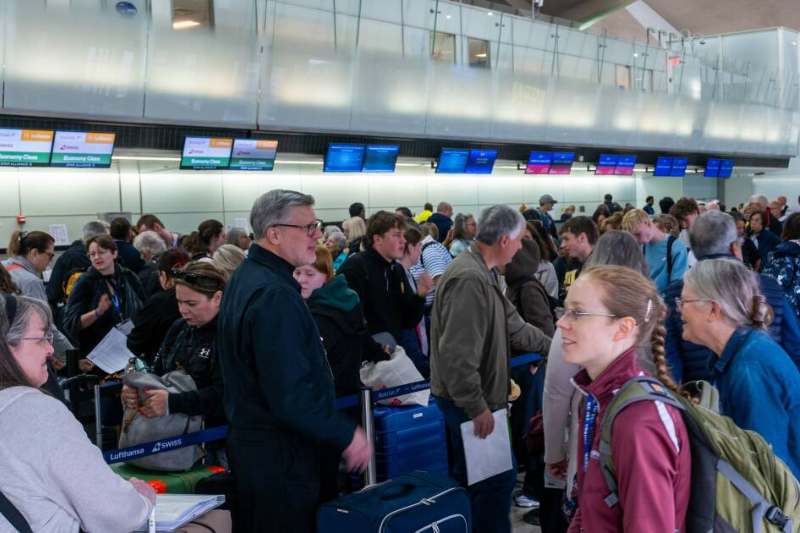
If you're planning to fly through Newark Liberty International Airport anytime soon, get ready for longer wait times. Newark Airport delays are affecting thousands of passengers daily, and experts say the situation is not likely to improve soon.
Flight disruptions, radar system issues, and staff shortages are combining into a perfect storm—just in time for the busiest travel months of the year.
Earlier in 2025, Newark experienced a serious FAA radar outage. For over a minute, air traffic controllers lost contact with aircraft. Though no accidents occurred, experts called it a “wake-up call” about the outdated technology still in use.
Newark Airport is working with infrastructure that hasn’t seen major upgrades in years. Some of the systems involved still use obsolete technology, which can lead to communication failures and dangerous close calls.
The FAA acknowledged the incident and admitted that similar system issues have led to other near-misses nationwide. At a critical hub like Newark, that means a single glitch can throw the entire day’s schedule into chaos.
Radar failures are only part of the problem. A severe air traffic controller shortage is making it even harder to keep things running smoothly at Newark.
Newark is one of the most impacted locations in the U.S. The FAA has confirmed that thousands of controller positions remain unfilled nationwide. Some staff in Newark were even placed on leave after the radar outage, reducing the already tight manpower even further.
With fewer people overseeing hundreds of daily flights, even the smallest disruption can cascade into hours-long delays.
As we enter peak summer travel season, things are likely to get worse. More travelers mean more pressure on an already strained system.
Experts are warning that Newark Airport delays could significantly impact summer travel plans. Many airlines are trying to ease the load by spacing out flights and cutting non-essential routes, but the impact will still be felt.
Passengers are advised to prepare for longer wait times and possible last-minute cancellations through the summer months.
In response to public concern, the FAA has announced modernization efforts at Newark and other major U.S. airports. Plans include upgrading radar systems, switching to fiber optic communications, and introducing new safety protocols.
But these changes take time. Upgrades at Newark may not be completed until late 2026 or beyond. That means travelers should expect continued Newark Airport delays through at least the end of 2025.
Until the improvements are fully in place, short-term fixes like airspace rerouting and flight caps may offer limited relief.
While you can’t stop delays, you can be prepared. Here are a few simple ways to reduce travel stress if you’re flying through Newark.
Book early morning flights to reduce the risk of delays.
Use airline apps for real-time alerts and gate changes.
Avoid tight layovers or consider alternate airports when possible.
Know your airline’s delay and rebooking policies ahead of time.
Travel insurance can help cover unexpected costs caused by long delays or cancellations.
The key is flexibility and awareness. Being proactive can save you time and frustration.
Because Newark is a major hub, delays there don’t stay local. They ripple through the entire U.S. airspace.
Nearby airports like JFK, LaGuardia, and Philadelphia often feel the impact. Delays at Newark cause congestion in surrounding air corridors, which affects both incoming and outgoing flights across the region.
If you're flying from or to the East Coast, even if you’re not going through Newark, your plans could still be affected.
Many travelers say they’re fed up. Some are actively avoiding Newark Liberty International Airport until the issues are resolved.
One passenger traveling from Houston to Boston shared her experience. “I had a layover at Newark. My flight was delayed by five hours and nobody could give me a straight answer. It was exhausting.”
Such stories are becoming increasingly common, especially as flight schedules become more unpredictable.
Newark Airport delays aren’t going away anytime soon. From radar outages to air traffic control shortages, multiple problems are converging at one of the country’s busiest airports.
Although the FAA is taking steps toward modernization, travelers should be realistic. Full improvements won’t come overnight.
For now, passengers should expect delays, stay flexible, and plan ahead whenever possible.